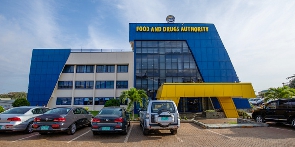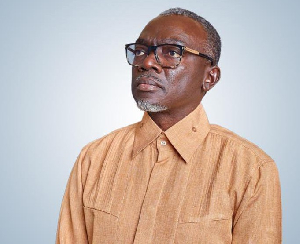Ghana’s Food and Drugs Authority (FDA) is mandated by law to test, approve, register and regulate the manufacture, importation and distribution of all food and pharmaceutical products as well as medical equipment on the Ghanaian market. Public health safety is their primary goal.
Originally the Food and Drugs board, it was converted into an authority to give the organization more powers and resources to be able to carry out this very important public health protection function.
The wide-ranging nature of the FDA’s mandate requires massive support of not only the government to succeed but also other state agencies such as the police service, Customs Excise and Preventive Service, the Ghana Revenue Authority, Ghana Immigration Service etc.
It is also in the interest of non-governmental stakeholders such as the Ghana Medical Association, the Association of Ghana Industries, the Ghana Chamber of Commerce, the Pharmaceutical Society of Ghana, the Ghana Importers Association of Ghana etc to give their maximum support to the work of the Food and Drugs Authority to work effectively to safeguard public health through the proper regulation of food and pharmaceutical manufacturing, importation and distribution on the Ghanaian market.
According to the Parliament of Ghana Committee on Health report on the 2024 annual budget allocation, the FDA’s internally generated funds (IGF) are used for all operational expenses such as staff compensation, goods and services as well as capital expenditure.
And the FDA currently retains 70% of revenues for its operations.
The parliament’s health committee observed that this notwithstanding, the 70% is woefully inadequate to meet the operational expenditure obligations required by the FDA to protect public health. The FDA has complained to parliament’s health committee that the performance of their mandate is hindered by inadequate logistics and resources.
This inadequacy of logistics and resources has led to a backlog of inspections with a current inspection waiting time of five (5) months at the FDA. This long inspection waiting time has further led to operational inefficiency and exposed consumers and the general public to the risk of unsafe food and pharmaceutical products on the market.
As has been done for the teaching hospitals in Ghana, the FDA could also be decapped of the 30% IGF in further support of its operations. In other words, the government of Ghana must allow the FDA to retain 100% of its internally generated funds rather than the current 70%. This will enable the FDA to procure new and replace aged laboratory and field equipment required to monitor substandard and falsified (SF) products on the Ghana market, increase their presence at porous borders to prevent the influx of SF products, procure additional vehicles to clear the backlog of inspections and prevent food poisoning incidents and street vended foods.
It will also enable the FDA to improve technology to effectively carry out critical regulatory functions required to protect public health and safety.
There has never been a better time than now for the government to take into consideration parliament’s own health committee recommendation to allow the FDA to retain 100% of IGF since this will greatly empower the organization to carry out its public mandate to improve the protection of public health.
Opinions of Monday, 20 May 2024
Columnist: Courage Alormasor



















